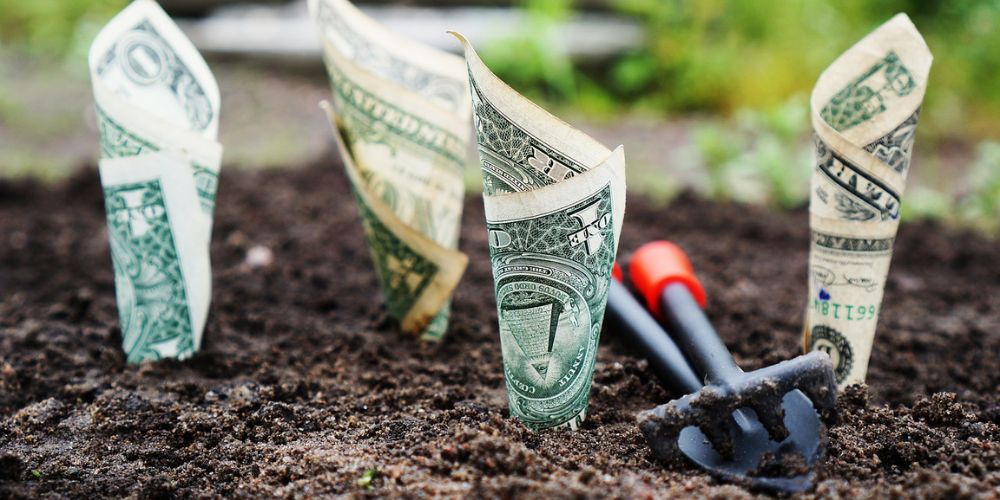I read an article recently about credit card use. It got me wondering if one aspect of getting into credit card debt is a result of a short-sighted perspective toward finances, rather than evaluating long-term financial goals.
Are your Finances short-sighted?
Inflation, cost of living, unexpected expenses, etc.
These are real challenges that affect us day-to-day. According to this article, this leads many to increased credit card debt.
BUT…
Something Bigger might be at Play About Personal Finances
We often get into a comfortable pattern of using money. I have certainly done this – save every penny I can without considering how to enjoy some of that money.
I think it ultimately comes down to survival mode – whether through spending on the day’s needs or making sure you’re ready for retirement.
I’ve gone through seasons of not thinking about money too much and other seasons of obsession with how much I’m saving.
What are your long-term financial goals?
It is easy to get caught up in the needs of the day, but how do you ultimately want to spend, save, or give your money?
What do you want the next 5, 10, or 20 years to look like? What do you want retirement to look like?
Creating Long-Term Financial goals
If you are married, consider your future ideas and dreams together. What financial changes do you need to make to achieve those goals and dreams?
While there is ultimately a dollar amount attached to each goal or dream, consider the patterns that will get you there – whether financial or otherwise.

Saving on Coffee Out - Why it's short-sighted
I’ve seen a lot of memes to the effect of “I gave up my daily coffee spending, why aren’t I rich yet?
While I think these comments are generally made in jest, there is something to it.
Cutting costs is only one tiny piece of the puzzle. If you’re cutting out your daily coffee because that’s “what you should do to save money” then you’re missing the point.
What are you aiming for with that action? What are you building toward?
Having a significant big-picture goal with actionable steps along the way will make the daily sacrifice of no fancy coffee drinks worthwhile.
Take a step back and look at your finances
Take time to look at your finances beyond cutting costs, emergency fund, paying off debt, and budgeting.
Looking at the overall direction will help you shape your approach for each element of your personal finances.
What is your attitude toward money now?
Is it mainly to give pleasure, security, completely utilitarian?
What do you want your attitude toward money to be?
What goals or dreams do you want to achieve with your money?
What attitude changes and steps do you need to take to get there?
On a personal note
We have discussed general goals for our finances – paying off our house early, saving for retirement, charitable giving, etc.
I set up a budget every year based on our current situation along with things we anticipate happening over the year. I then run it by my husband and make any needed adjustments.
P.S. I love getting coffee out 🙂
Leave Space for Long-term Financial goals to change
While it’s important to have a plan, it’s also important to recognize that goals or priorities may change over time.
What you thought you might want in life at 35 may be different than what you realize you actually want at 50.
What do you want your overall financial direction to look like?
Do you want to move elsewhere? Give generously? Something else?
Have a flexible timeline
I think in our culture we can get so set on something and then feel like a failure if we don’t achieve it by a certain goal time.
While I think it’s helpful and motivating to have specific goals and deadlines, the reality is…life happens. If your goal was to save a fully funded emergency fund in 6 months, but it took 10 because of unforeseen events, that’s still a win!
I think it’s important not to use unforeseen events as an excuse or get so discouraged and give up.
How do you get there?
I recently had a doctor’s appointment, and my doctor was telling me that Americans tend toward extremes, and she gave an example about running. She was saying you don’t need to run a marathon to be healthy. Pursue running while also listening to your body. Stop or decrease the amount if you’re starting to put too much stress on your body.
I think this also applies to finances. I used to be on the extreme of saving every possible penny. While I still tend toward this, I’ve been trying to “see both sides” and live more in the grey area of life – not just in finances.
That said, some foundational actions will help you have a more balanced approach and help you determine where your long-term financial goals.
Create a Budget – Knowing where your money is coming from and going is crucial to developing long-term financial goals. Without a budget, your money will flounder.
Payoff Debt – The borrower is a slave to the lender – that certainly feels true! Paying off debt gives you the bandwidth to put your money toward future financial goals.
Plan for the big stuff – When you automatically save or spend on pre-determined expenses, you don’t have to sweat the small, daily purchases.
Seeking peace about finances
It’s easy to stress about money – whether it’s debt, saving or spending it.
In my own experience, I tend toward stressing out without any real need to.
I think it’s comforting to look at the peace god offers through His grace in every area of life – not just finances! We can look to Him for profound peace and security that will never be fully realized through our bank account.
Colossians 3:15 – And let the peace of Christ rule in your hearts, to which indeed you were called in one body. And be thankful.
Philippians 4:6 -Do not be anxious about anything, but in everything by prayer and supplication with thanksgiving let your requests be made known to God.
1 Peter 5:7 – Casting all your anxieties on him, because he cares for you.



